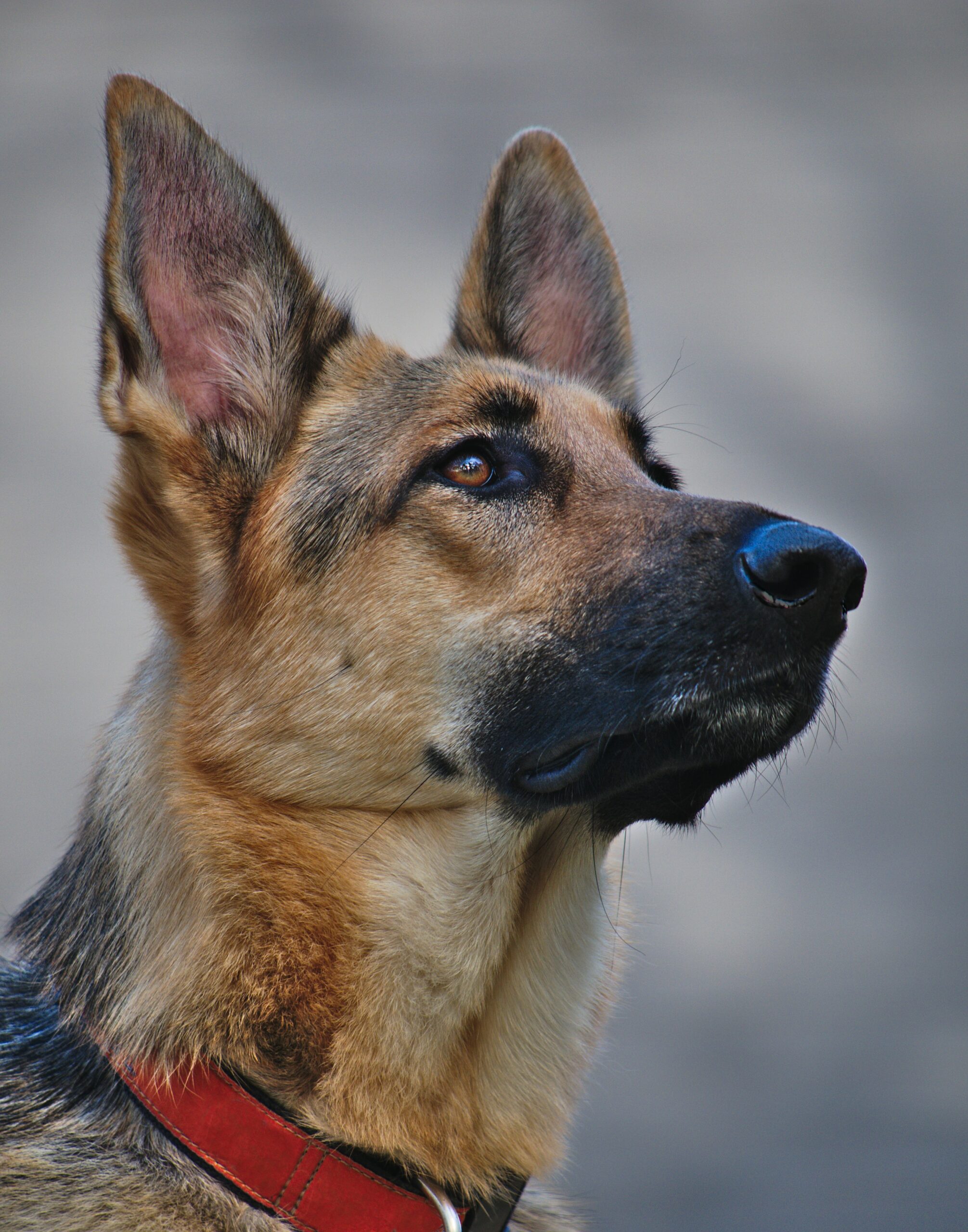Because of their roles as rescue dogs, police dogs, and bomb sniffing dogs, German Shepherds have achieved a visibility beyond many other dog breeds. They are, in fact, the second most registered dog breed in the United States. But they have known an unearned and checkered past.
A Brief Breed History
The first registration of the German shepherd breed was in 1899 and these loyal and highly intelligent dogs spread in popularity. But if you’ve heard the name Alsatian used with the breed, you’ve had a glimpse of their darker past. This term was invented by the British during World War I to avoid connecting the breed with the country’s enemy. A number of American Kennel Club wins in the 1930s boosted their appeal, only to have their image once again shattered by World War II.
German Shepard’s Personality Traits
Now, however, the breed is known for their agility, strength, trustworthiness, and loyalty. They are also among the smartest registered breeds in the world, next only to the border collie and the poodle. But like their past, German Shepherds have health issues to be aware of if you’re considering one as a pet. Familiarizing yourself with the common problems that this breed faces can help you extend your German Shepherd’s lifespan.
Physical Activity Levels and Their High IQ
First, it is important to recognize the necessity of training. Because of their high intelligence and energy, German Shepherds need activity and mental stimulation. Furthermore, their loyalty sometimes leads to an overprotective streak that can be seen as aggression. Proper early training can stem later troubles with aggression in the breed. Shepherds are also prone to anxiety that can lead to destructive and aggressive behaviors, so this is not a breed you’ll want to leave alone for long stretches of time.
 Possible Genetic Problems
Possible Genetic Problems
Besides mental health issues, you’ll want to be aware of some physical issues, some avoidable and some not, that might arise. There are, of course, problems that this breed faces, such as ear inflammation, skin cysts, nuclear sclerosis, arthritis, and dental tartar, that become more common with aging, but there are also some more serious concerns that can arise at any time in the dog’s life. These include:
- Panosteitis: An inflammation of the dog’s outer leg that can be quite painful. Although it usually resolves on its own, it may require pain medication as a treatment.
- Epilepsy: German Shepherds are at twice the risk for this nervous disorder that can involve seizures, salivating, and loss of bowel control. The disorder is, however, very treatable with proper medication.
- Hip Dysplasia: Common among larger breeds of dogs, hip dysplasia is five times more likely in German Shepherds. This deformation of the joint can quickly worsen from minor pain to severe enough to require surgery. The best way to avoid this is to buy from a breeder who has had both breeding parents “hip-scored” so that your pup is not likely to inherit the disorder.
- Degenerative Myelopathy: Sadly, this degenerative disease that can result in paralysis is the primary reason for early euthanasia in German Shepherds. While incurable, the disease can be avoided by choosing a reputable breeder who has ensured that parents don’t carry the recessive gene. It takes both parents passing on the gene so one non-carrier is enough to prevent the possibility.
- Von Willebrand Disease: Essentially, hemophilia, this disease causes a lack of clotting proteins in the dog’s blood, which means that even minor injuries can cause severe bleeding in the dog.
- Gastric dilatation volvulus: or “Bloat” as it is more commonly known is a life-threatening condition that causes the dog’s stomach to twist, requiring immediate emergency medical response.
- Exocrine pancreatic insufficiency: This disorder leads to the dog’s pancreas producing insufficient digestive enzymes to properly digest nutrients which then can’t be absorbed. The condition can be treated with a lifelong regimen of digestive supplements.
- Anal furunculosis: This is essentially inflammation and ulcers around the anus that are treated either surgically or with the use of immunosuppressants.
–
photo credit: https://unsplash.com/photos/si06cFB0g1s
https://unsplash.com/photos/KAoBe8gozbg
Ivan Young is a writer for Walkin’ Pets, a leading expert in dog mobility solutions.
Love our content? Share it with a friend or link it to social media. Like short clips of cute household pets? Training tips? Follow us on instagram @nydognanny or on YouTube at nydognanny. Have some news you needs to get to dog and cat parents stat? Email info@newyorkdognanny.com with your article pitch.



